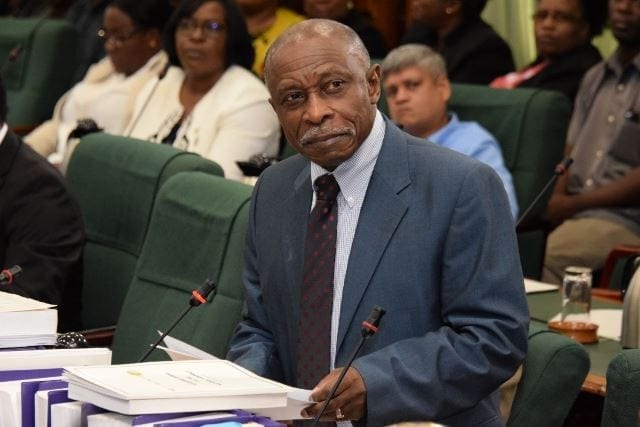Guyana’s ratification of several international conventions has been approved by Cabinet. These are aimed at, among other things, strengthening the country’s legal framework for the emerging Oil and Gas industry.
This was announced by the country’s Foreign Affairs Minister Carl Greenidge during the 2019 budget debate in the National Assembly on Friday.
One such instrument is the 2000 Protocol on Hazardous and Noxious Substances to the 1990 International Convention on Oil Pollution Preparedness, Response and Co-operation. This provides a framework designed to facilitate international co-operation and mutual assistance in preparing for and responding to major oil pollution incidents. It requires States to plan and prepare by developing national systems for pollution response in their respective countries, by maintaining adequate capacity and resources to address oil pollution emergencies.
The Protocol also extends the regulatory framework to address pollution incidents involving hazardous and noxious substances such as chemicals.
The Foreign Affairs Minister explained the challenges regarding the management of oil spills. “Whilst the dangers are indeed real no single developing state has ever been called on to meet the cost of a petroleum spill in its entirety or even primarily,” he said. According to him, states are protected by the time-worn device of company and collective/industry insurance as well as national disaster arrangements.
These include the 1992 International Oil Pollution Compensation Funds (IOPC Funds) and The International Oil Pollution Compensation Supplementary Fund.The main purposes of this Convention are to provide compensation for pollution damage to and by key parties involved.
Meanwhile, the Foreign Affairs Minister has stated that Guyana has already began collaboration with neighbouring Trinidad and Tobago on oil spill management under the recently signed Memorandum of Understanding on Energy Cooperation.
Conventions
Another convention approved for ratification is on Civil Liability for Bunker Oil Pollution Damage. This Convention was adopted to ensure that adequate, prompt, and effective compensation is available to persons who suffer damage caused by spills of oil, when carried as fuel in ships and bunkers. It applies to damage caused on the territory, including the territorial sea, and in Exclusive Economic Zones (EEZ) of States.
Guyana also intends to accede to the Protocol of 1992 to amend the International Convention on Civil Liability for Oil Pollution Damage. This Protocol is exclusive to pollution damage and preventive measures. A shipowner is held strictly liable for pollution damage in the territory, territorial sea and the EEZ of a State, unless it is proved that such damage was a result of the negligence of State authorities.
“We also propose to advise Cabinet to have the relevant agencies (MARAD, EPA and GGMC possibly) consider requiring tankers operating in Guyana’s waters to contribute to funds and have contracts with Guyana’s CDC and the region’s CDEMA and to carry enough insurance to cover their liability in the unlikely event of a spill in our waters,” the Mr. Greenidge told the house.
While the Environmental Impact Assessment study for the Liza Phase 1 Development points to a low probability of an oil spill occurring offshore Guyana, ExxonMobil has said it has a robust Oil Spill Response Plan in the case of any eventuality.
The Plan covers incidents associated with the shore bases utilized by its affiliate Esso Exploration and Production Guyana Limited as well as the offshore operations in the Stabroek Block, including the possibility of hydrocarbon and chemical releases, search and rescue, offshore medical evacuation, medical emergency, fatality, fire or explosion at a work site, natural disaster and security or civil disturbance.



